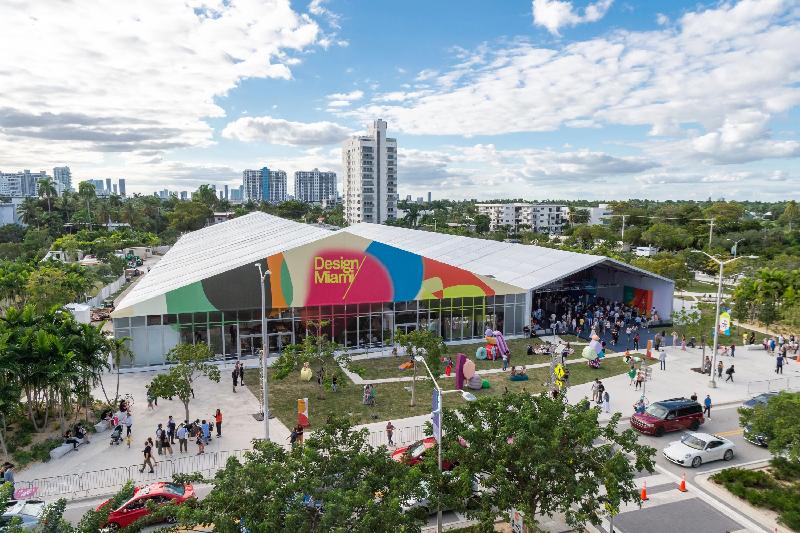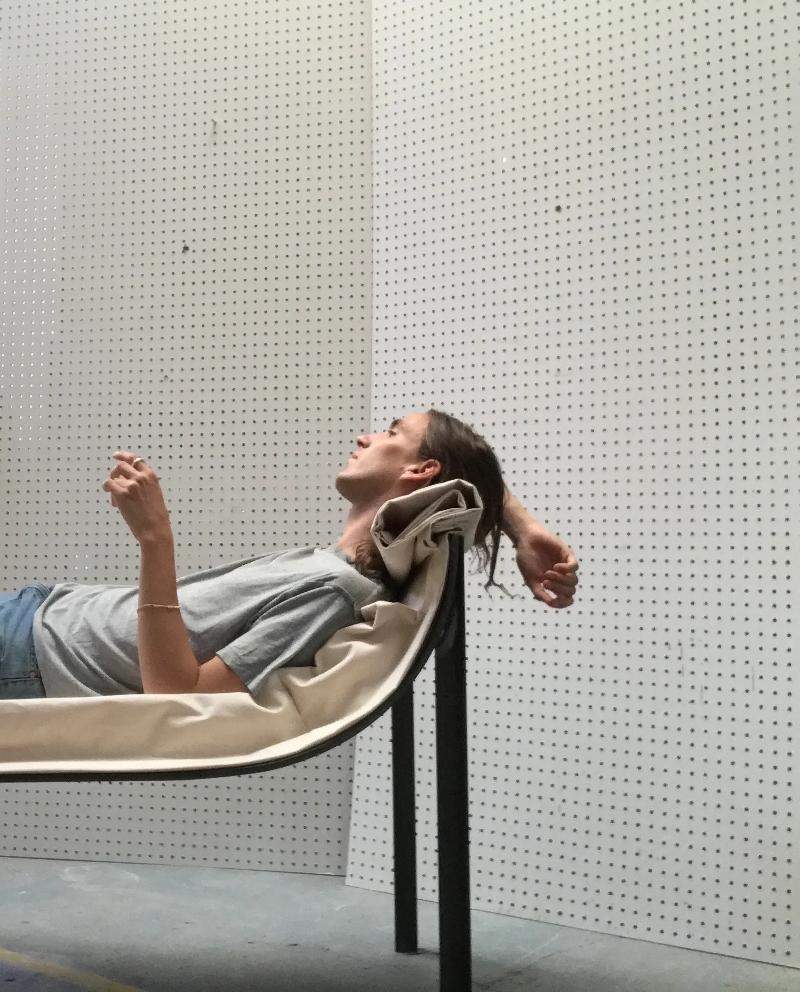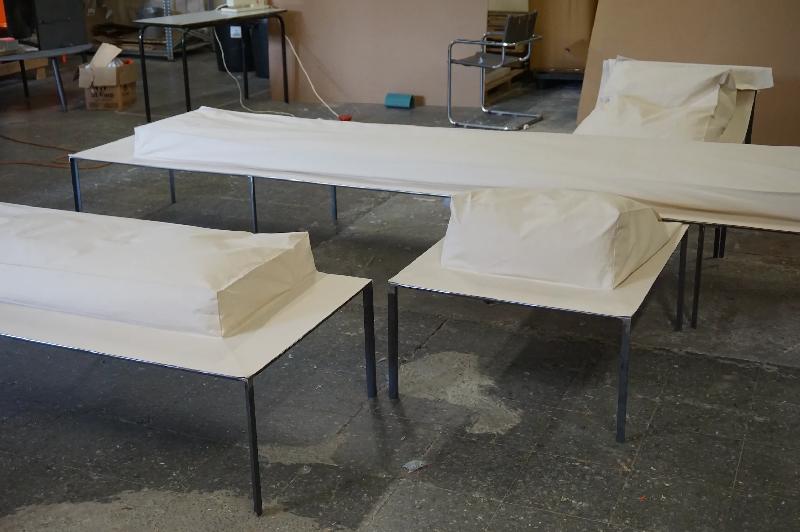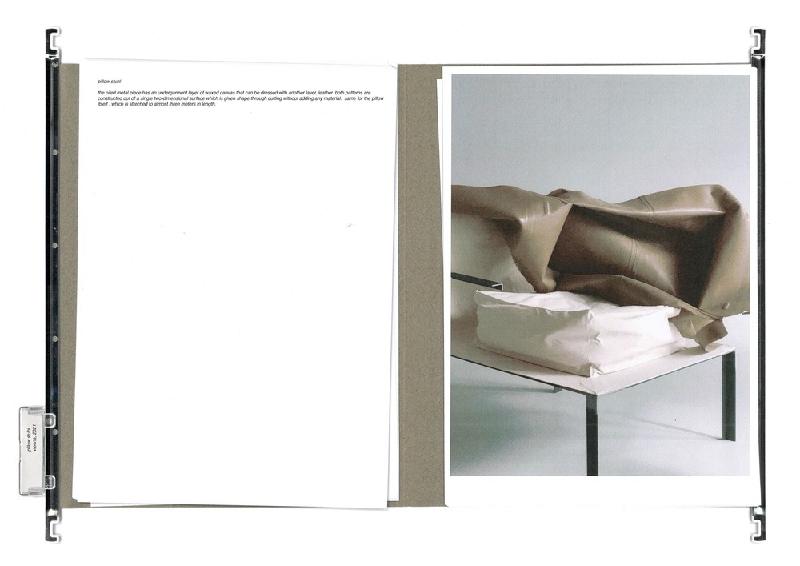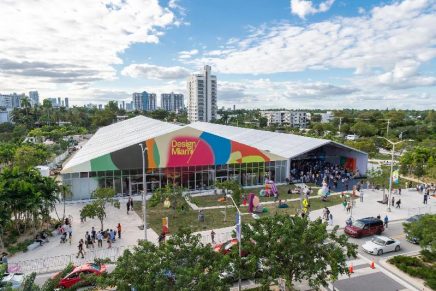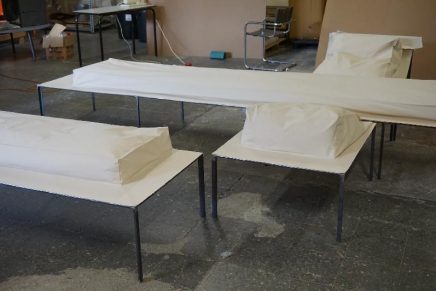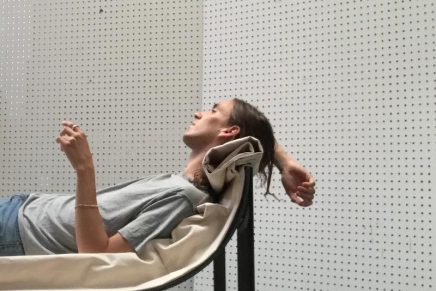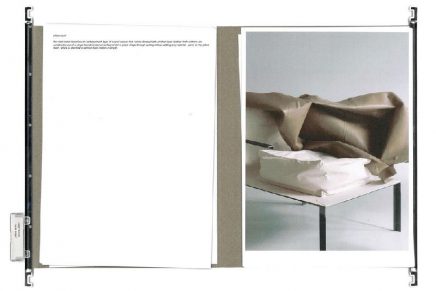This year’s Design Miami/ program explores the theme of The Golden Age: Looking to the Future, celebrating a tomorrow of our own creation. Discover the fair in-person and online at designmiami.com.
Design Miami/ , the global forum for collectible design, invites designers, businesses, institutions, partners and sponsors to present newly commissioned works of design, creating unique exhibitions with strong curatorial and educational perspectives. The 2022 edition sees collaborations with Audi x Andrés Reisinger, Maison Perrier-Jouët x Garance Vallée, Kohler x Nada Debs, Dolce&Gabbana Alta Gioielleria, Bottega Veneta, Panerai La Merenda d’Oro, Grand Seiko, and more.
Audi presents a new immersive and experiential digital installation in cooperation with digital artist and designer Andrés Reisinger. Kohler is partnering with global artist Nada Debs on the first hammam to be displayed at Design Miami/. The collaboration between Garance Vallée and Maison Perrier-Jouët originated in a shared vision of nature, expressed in all its diversity, and of Man’s place within it.
Grand Seiko, the renowned luxury Japanese timepiece manufacturer, debuts an installation for Design Miami/ which celebrates the brand’s Japanese heritage and strong bond to nature. 140 years ago, Georges Nagelmackers turned his dream into reality by launching the first luxury Orient Express trains. Today, the legend continues with the unveiling of the future Orient Express train.
Celebrating the modern golden age of Italian history, Panerai takes you back to the 1970’s. The masterpieces of Dolce&Gabbana Alta Gioielleria represent a universe of creativity where the invention of new forms is combined with the preservation of Italy’s renowned tradition of fine jewellery-making.
USM NYC by Ben Ganz is a special collaboration between Swiss manufacturer USM Modular Furniture and New York-based design platform PIN–UP HOME.
Bottega Veneta’s creative director Matthieu Blazy invited pioneering designer Gaetano Pesce to create the space for the brand’s Summer 23 show in Milan this past September. The commission will be presented as a site-specific installation for this year’s Design Miami/. The official university partner of Design Miami/, SCAD collaborates with renowned Mexican studio Cerámica Suro to debut vibrant collections of glazed tiles by SCAD alumni artists.
Maestro Dobel Artpothecary proudly presents The Mexican Golden Age, celebrating the birth of the modern Mexican aesthetic.
This year, AIG Private Client Group has commissioned Bradley Bowers, Doo Architecture and B&B Italia to collectively design the stunning Collector’s Lounge at Design Miami/.
This year for Design Miami/, FENDI has invited Vienna-based artist Lukas Gschwandtner to make a new body of work.
Seen by Gschwandtner as an opportunity to engage with one another’s boundaries and experiences, he has proposed a triclinium formation of chaise longue chairs, and an iteration of his case study series Pillow Portraits.
The series, which consists of wearable canvas sculptures referencing historical portraits of women reclining on furniture, is now infused by Gschwandtner’s interest and attachment to the history of ancient Rome, ‘The Eternal City’ where FENDI was founded, its art and its architecture as translated through mediated imagery.
The work of Lukas Gschwandtner engages with the scale and measurement of the human body and its interaction with space, furniture, and objects in both historical and contemporary context. He investigates the body language that a piece of furniture suggests and how this proposal is interrupted and repurposed by its use.
Through his recent research Gschwandtner found a personal connection between FENDI’s historic relationship to leather manufacturing and his own background in leather craftsmanship in Vienna, where he trained in leather accessories from the age of 14 at Schloss Hetzendorf. He further identified a material relevance in the atelier’s use of Calico, the heavy, plain-woven textile made from unbleached cotton. Commonly used within the fashion industry for toiles — a first version of a garment made to test a pattern — it had also already been established within Gschwandtner’s practice as a key motif, allowing him to concentrate on pure form.
In this body of work, canvas is seen as an undergarment and additional textile layers as ‘dresses’, their material relationship allowing him to play with proportion and visual weight. When worn, the Pillow Portraits direct the wearer’s body to take on the posture of a corresponding artwork, such as Antonio Canova’s Pauline Bonaparte as Venus Victrix, Titian’s Venus of Urbino and Sleeping Ariadne, the reclining Roman Hadrianic sculpture also evoked in the Giorgio de Chirico painting Solitude, where she appears against a backdrop of arches reminiscent of the FENDI headquarters at Palazzo della Civiltà Italiana. Because his canvas sculptures extract simplified forms from the paintings and artworks, their historical, class, and gender context is abstracted, creating room for personal interpretations and democratised experiences.
The final piece presented at Design Miami/ is Lukas’ interpretation of FENDI’s iconic Peekaboo handbag, for which he filled each compartment of the bag with plaster, before cutting away the original material to reveal the bag’s inner construction imprinted on the cast.
In Triclinium, Gschwandtner creates both a subconscious and physical space for conversation, in dialogue with the work, oneself and with others. He reflects on how museums are more often experienced and how ancient surfaces are read in relation to a contemporary inclination for documentation and dissemination.
In 2021 Lukas had the solo show Pillow Portraits with Maniera in Brussels, which was the starting point for his ongoing case study series of wearable canvas sculptures of historical women portrayed on pieces of furniture.

